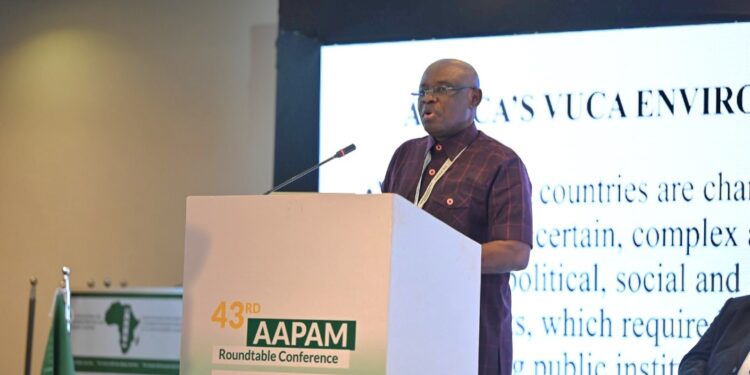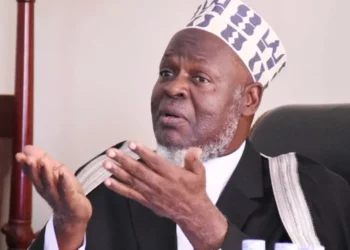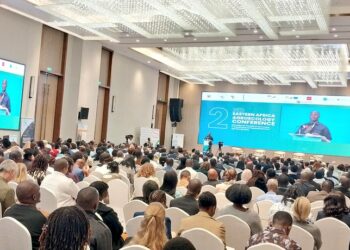Public Administrators have been tipped on building Resilient institutions in Africa.
Presenting a paper on Africa VUCA environment: The Imperative for Agile and Resilient Institutions for Sustainable Development, Prof. Uketor Moti Gabriel, from the University of Abuja, Nigeria, underscored the importance of adaptability in sustaining an institution.

“If we build a resilient institution, we shall be able to achieve sustainable development,” he said.
Prof. Uketor made the remarks on Wednesday, 27th November, 2024 during the ongoing 43rd African Association for Public Administration and Management (AAPAM) Round Table Conference and Annual General Meeting being held at Speke Resort Munyonyo, Kampala.
The four-day round table conference that attracted over 1,000 delegates from across Africa, is running under the theme: “Agile and Resilient Public Administration for Sustainable Development in Africa”.
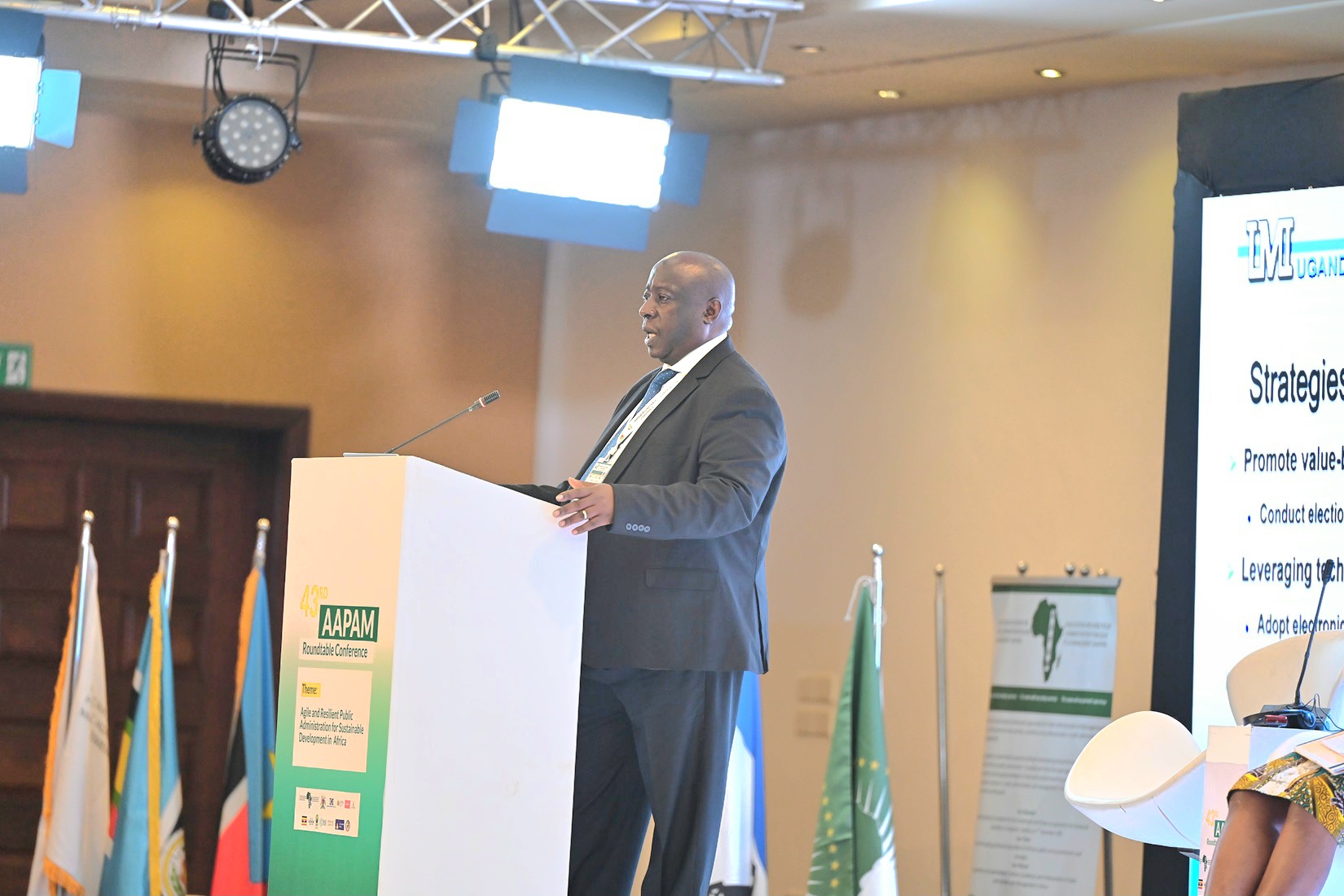
The event aims at deliberating on strategies to strengthen governance systems to address Africa’s social, economic and environmental challenges.
He also highlighted challenges like corruption, inflation, and bad governance that hinder sustainable development of institutions in Africa.
“These challenges are a big problem, they retard sustainability. Sustainable development can only happen when we have strong institutions,” Prof. Uketor said.
“An institution should be Resilient and agile in order to respond to these challenges,” he added.

Prof. Gerald Kagambirwe Karyeija, from the Uganda Management Institute (UMI) who discussed a paper on Building Agile and Resilient Electoral Commissions in Africa: Challenges and opportunities from Uganda, informed the attendees that citizens need to build agile and resilient political institutions in order to hold the EC accountable.
“The agility and resilience of Electoral Commissions are essential for the sustainability of democratic processes in Africa,” Prof. Karyeija noted.
He also tipped the Public Administrators on the strategies for building agility and resilience.
Prof. Karyeija said authorities should develop risk mitigation strategies by coming up with contingency plans and conduct regular risk assessments on cybersecurity, political interference and logistical issues.
“We should also uphold transparency and accountability by using transparent procedures, be accountable and engage with stakeholders and we should also increase adaptability capability through regular training and capacity building programs to EC staff.”
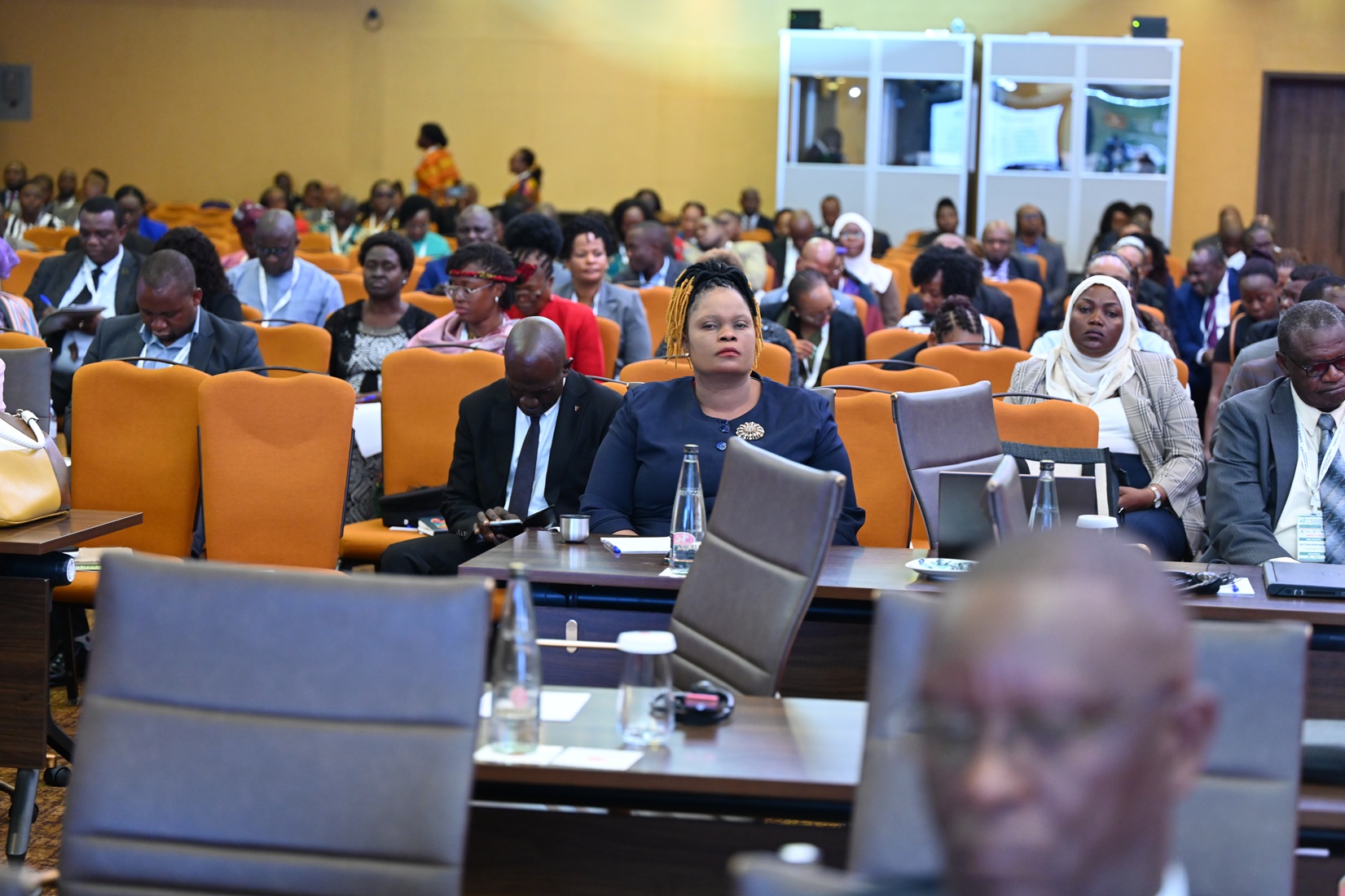
On the side of crisis management, the Principal Assistant Secretary Jinja Ministry of Lands and Urban Development Zonal Office, Ms. Beatrice Oling Adong highlighted the critical importance of effective administrative strategies in mitigating crises.
Citing an example of Covid-19 and how it was handled at Entebbe Regional Referral Hospital, Ms. Adong said the crisis was a big challenge as far as management was concerned.
“Covid 19 pandemic offered valuable insights into hospital crisis management, highlighting the critical role of preparedness, flexibility and clear communication,” she said.
“By adopting best practices, the hospital can significantly improve their responsiveness capacities.”
On her part, the Deputy Head of Public Service and Deputy Secretary to Cabinet, Dr. Mary Theopista Wenene said Uganda has made progress in improving various aspects of health service delivery.
“We have established a number of policies and regulatory frameworks. We have very well trained health workers, we constructed health facilities as well as enhancing the pay of health workers. This has promoted effectiveness and efficiency,” Dr. Wenene said.
“However, there are still a number of complaints regarding the availability and quality of health services like the availability of health workers.”
Do you have a story in your community or an opinion to share with us: Email us at editorial@watchdoguganda.com


